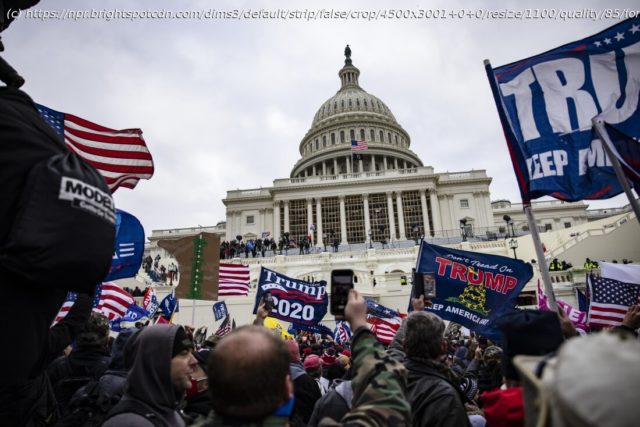Few political violence researchers believe there will be a repeat of the Jan. 6th attack. Instead, many warn that election-related violence is more likely to happen in local communities.
As Election Day nears, uncertainty remains high over almost every aspect of the presidential race. In swing states, former President Donald Trump and Vice President Harris continue to poll closely. There have been two attempted assassinations against Trump. But many researchers and conflict mitigation practitioners are concerned that the possibility of political violence in the coming weeks and months may be more certain than it has in any recent election.
“Every single number is elevated, from hate crimes, political homicides, people driving into protesters, you name it,” said Rachel Kleinfeld, senior fellow at the Carnegie Endowment for International Peace. “If it’s a kind of political violence, it’s been going up since 2015.”
In February, Kleinfeld invited roughly 100 people to discuss trends and consider the future, looking at the possibility of violence going into, during and after the election. The group included academics, as well as civil society groups focused on democracy and violence mitigation work. Kleinfeld said it was an unprecedented exercise.
“There has been no scenario planning for violence at election time, even when the elections were really close, like 2000 with Gore versus Bush,” she said. “This time is very different.”
NPR spoke with more than a dozen people who, like Kleinfeld, have been involved in such scenario planning. All of them work outside of government and law enforcement, but have been involved in efforts aimed at de-escalating polarization campaigns that might otherwise turn violent. While concern remains high, many say violence is not inevitable and that ordinary people can play an important part of defusing tensions.
Experts are worried about state and local political violence
Among the worrying scenarios that organizations are planning for is one where Trump again loses and refuses to concede. Few, however, believe there will be a repeat of the January 6th attack at the U.S. Capitol. Instead, many say there may be organized efforts to interfere with state certification processes or local vote tallying efforts.
“It might be more diffuse, in lots of places across the country, which, in many respects, actually heightens the threat,” said Pete Simi, a professor of sociology at Chapman University.
Common Defense, a national, progressive, grassroots organization of 40,000 veterans has been preparing its own network to respond to locations where such crises may unfold. It is assembling Quick Reaction Forces, or QRFs, to show up unarmed and in plainclothes.
“We’re training a lot of folks in de-escalation,” said Perry O’Brien, co-founder of Common Defense. “We’re training folks in monitoring and capturing video for accountability.”
In addition, O’Brien said the organization is training its own members to gather open source intelligence — publicly available information, often posted to social media sites — to monitor extremist activity in swing states around the election.
“That’s obviously the area that we’re anticipating a lot of these threats are going to come from,” he said.
The consensus among experts is not just that political violence in the U.S. will become more diffuse in location, but that potential targets will be more varied, as well. Heightened polarization has extended the division between “left” and “right” so deeply that even people and organizations that do human services work are having to think about security.
Home
United States
USA — mix How civil society groups are quietly working to prevent election-related violence






